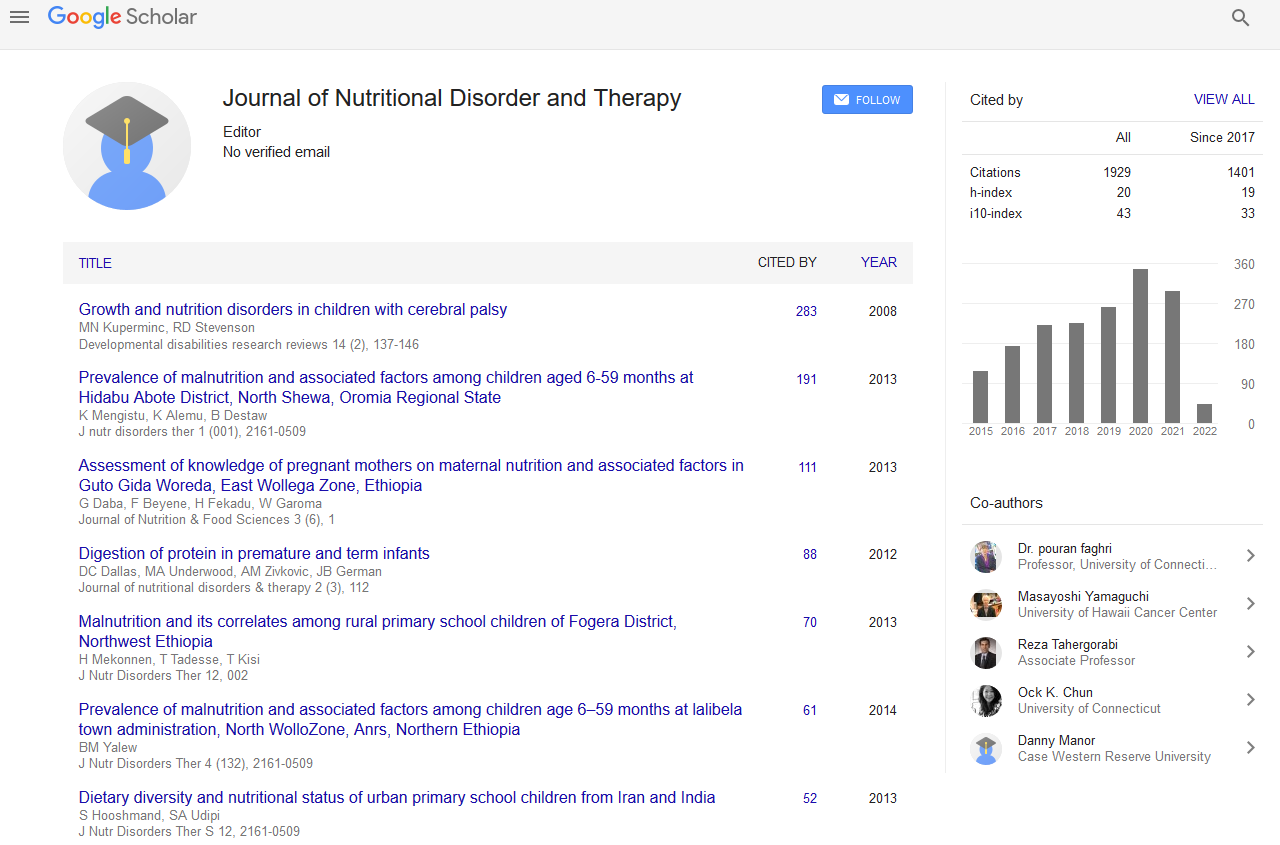Indexed In
- Open J Gate
- Genamics JournalSeek
- Academic Keys
- JournalTOCs
- Ulrich's Periodicals Directory
- RefSeek
- Hamdard University
- EBSCO A-Z
- OCLC- WorldCat
- Publons
- Geneva Foundation for Medical Education and Research
- Euro Pub
Useful Links
Share This Page
Journal Flyer

Open Access Journals
- Agri and Aquaculture
- Biochemistry
- Bioinformatics & Systems Biology
- Business & Management
- Chemistry
- Clinical Sciences
- Engineering
- Food & Nutrition
- General Science
- Genetics & Molecular Biology
- Immunology & Microbiology
- Medical Sciences
- Neuroscience & Psychology
- Nursing & Health Care
- Pharmaceutical Sciences
Abstract
The Benefits of Expressed Maternal Milk and Donor Breast Milk for Preventing Necrotizing Enterocolitis in Preterm Infants: Systematic Review and Meta- Analysis
Xiao-Ming Ben, Rui Chen, Zong-Tai Feng, Tao-ying Chen and Jin-Han Zhang
To examine the protective effects that feeding with expressed maternal milk and donor breast milk compared with formula milk reduces the risk of development of necrotizing enterocolitis in preterm infants.
Data sources: The studies for our systematic review were searched from our library’s electronic databases including PUBMED/MEDLINE, SCIENCEDIRECT (1997-2008), EBSCOHOST (1965-2008), EMBASE (1974-2008),OVID (1993-2008) and Cochrane Library.
Methods: Systematic review and meta-analysis of randomized controlled trials or quasi-randomized controlled trials.
Results: In our systematic review and meta-analysis only five trials fulfilled the prespecified inclusion criteria.Except for one study, all the rest included studies which were initiated nearly three decades ago. None of the individual trials found any statistically significant difference in the incidence of necrotizing enterocolitis. However, meta-analysis found that preterm infants feeding with donor breast milk was associated with a significantly reduced relative risk of necrotizing enterocolitis. Suspected necrotizing enterocolitis was three times less likely (relative risk 0.31; 95% confidence interval 0.12-0.81; p=0.02<0.05) and confirmed necrotizing enterocolitis was four times less likely (relative risk 0.24; 95% confidence interval 0.07-0.76; p=0.02<0.05) in premature infants feeding with donor breast milk compared with formula milk given as a sole diet. No data to date was available to be combined in our meta-analysis to compare expressed maternal milk with formula milk given as a sole diet.
Conclusion: Feeding with donor breast milk is associated with a lower risk of necrotizing enterocolitis in preterm infants, but the protective benefits of donor breast milk are described as of borderline effects and the quality of the evidence is limited.


